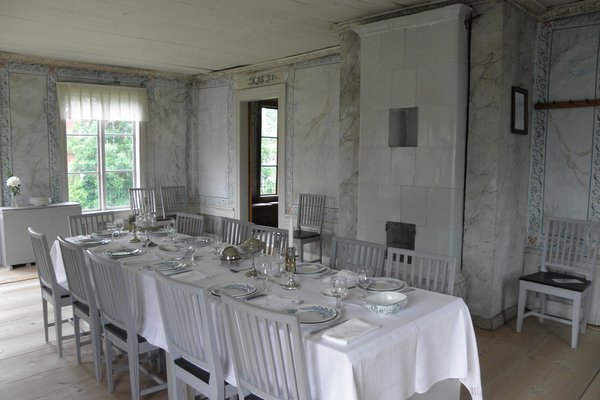Sweden
Decorated Farmhouses of Hälsingland
The Decorated Farmhouses of Hälsingland are seven large timber farmhouses with richly decorated interiors.
They date mainly from the 18th and 19th centuries. The decorations were made in the regional folk art tradition, and reflect the prosperity of the farmers of that period. A special room or even a separate house was set aside for festivities.
Community Perspective: The Erik-Anders farm is the most accessible (all are in private use), as it opens daily to tourists in summer. In Långhed you can stay in a similar-style guesthouse and gain access to the inscribed site in town, as described by Ian. Clyde visited the Pallars and Jon-Lars decorated farmhouses.
Site Info
Official Information
- Full Name
- Decorated Farmhouses of Hälsingland (ID: 1282)
- Country
- Sweden
- Status
-
Inscribed 2012
Site history
History of Decorated Farmhouses of Hälsingland
- 2012: Advisory Body overruled
- ICOMOS had asked for referral
- 2012: Inscribed
- Inscribed
- 2009: Deferred
- Focus on a few exceptional decorated farmhouses
- 2008: Incomplete - not examined
- Type
- Cultural
- Criteria
- v
Links
- UNESCO
- whc.unesco.org
- Official
-
- halsingegardar.se — Collaborative site Farmhouses of Hälsingland
All Links
UNESCO.org
- whc.unesco.org — whc.unesco.org/
Official Website
- halsingegardar.se — Collaborative site Farmhouses of Hälsingland
Community Information
- Community Category
- Secular structure: Residence
Travel Information
Recent Connections
-
Built in the 19th Century
Tradition dates from earlier, but these… -
Falun Red
-
Textiles
Linen : The wealth of Hälsingland deriv…
Connections of Decorated Farmhouses of Hälsingland
- Geography
- Trivia
-
-
Google Doodles
June 6, 2016, Sweden National Day 2016See www.google.com
-
In private ownership
6 out of 7 are privately owned, the owners still live there (AB)
-
- Architecture
- World Heritage Process
-
-
Inscribed on a single criterion only
v. to be an outstanding example of a traditional human settlement, land-use, or sea-use which is representative of a culture (or cultures), or human interaction with the environment especially when it has become vulnerable under the impact of irreversible change
-
- Human Activity
-
-
Textiles
Linen : The wealth of Hälsingland derived to a significant degree from the growing of flax and the production of linen. An earlier version of the nomination included a flax mill and the Gästgivars farmhouse contains a "flax barn". The nomination file contains an entire section titled "Linen production" and includes the following - "The processing of the flax into finished textiles was performed at home on the Hälsingland farms".
-
- Constructions
- Timeline
-
-
Built in the 19th Century
Tradition dates from earlier, but these 7 were built in the 1800s
-
News
No news.
Recent Visitors
Visitors of Decorated Farmhouses of Hälsingland
- Alexander Barabanov
- Alexander Lehmann
- Argo
- Axel Hansson
- Bin
- Birgitte Sørensen
- Cezar Grozavu
- Cheryl
- Christer Sundberg
- christof
- Claire Bradshaw
- Clyde
- Csaba Nováczky
- Daniel Chazad
- Dan Pettigrew
- Dimitar Krastev
- Els Slots
- Farinelli
- Gary Arndt
- George Gdanski
- GeorgeIng61
- Hadrianus
- Harry Mitsidis
- henrik_hannfors
- Iain Jackson
- Ian Cade
- Ingemar Eriksson
- Ivan Rucek
- Jana and Matt
- Jan Korpeg
- Jarek Pokrzywnicki
- Joel on the Road
- Jonas Hagung
- Jonas Kremer
- Jonas Martinsson
- Juha Sjoeblom
- KarenBMoore
- Kbecq
- Kurt Lauer
- Loic Pedras
- Luis Filipe Gaspar
- Maciej Gil
- Martina Rúčková
- Mikko
- Milan Jirasek
- Miloš Tašković
- MMM
- nan
- Olli-Pekka Turunen
- Patrik
- PeterH
- Peter Lööv
- Philipp Peterer
- Piotr Wasil
- Priyaranjan Mohapatra
- Randi Thomsen
- Roger Enarsson
- Roger Ourset
- Roman Bruehwiler
- Roman Raab
- Sergio Arjona
- Shandos Cleaver
- Svein Elias
- Szucs Tamas
- Thomas Buechler
- Thomas van der Walt
- Tom Flaten
- Tsunami
- Vanessa Buechler
- Walter
- Wojciech Fedoruk
- YaroMir
- Zoë Sheng
Community Reviews
Show full reviewsAlexander Barabanov
Decorated Farmhouses of Hälsingland
Decorated Farmhouses of Hälsingland (Inscribed)
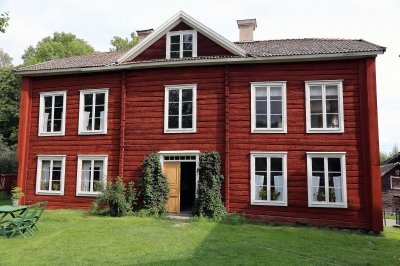
Visited Erik-Anders house in August 2018. This is lovely village timber house, richly decorated with colorful wallpapers and spacious rooms. This house is the only easily available house among seven inscribed ones. Afterwards I drove to Jon-Lars and Pallars, which were already closed for visits. They are only open during mid-summer time, and seasonal opening information could be found on the official website of Hälsingland farmhouses. They also try to promote non-inscribed houses and, for example, Edsbyn & Alfta Tourist Bureau also had such non-listed house which turned out to be very interesting to visit (free of charge). Jon-Lars and Pallars locations are indeed to be checked in advance in order to arrive to proper sites as they quite tricky to find. Then I headed to Bortom AA, but since there was around one hour to wait before the next obligatory guided tour and I had some time restrictions, I was limited to a pleasant stroll around the area. This is not blockbuster site, but it was quite curious to discover how the people covering quite sizeable region and living over 200 years ago came to an idea to decorate their houses despite of many other problems (water, harvest, cows, cold, etc.) facing them.
Keep reading 0 comments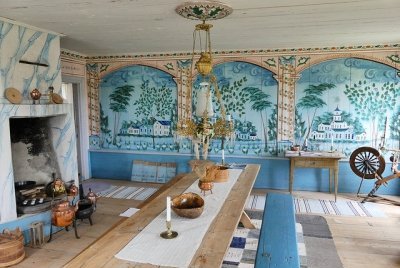
I visited this WHS in June 2018. The Decorated Farmhouses of Hälsingland are one of those great WHS which I would have never visited were it not for their inscription on the WH list. Even more so, since their beauty lies mostly in their decorated interior. There are more than 400 of these decorated farmhouses (some you can sleep over in) and the vast majority are very similar with falun red painting. Since inscription, street signs with the UNESCO symbol have been placed near the inscribed farmhouses.
From Falun I drove towards Alfta to the restored and non-inscribed Ol Anderson decorated farmhouse which also houses an emigrants museum. During July and August, the visitor centre is open everyday from 11:00 to 17:00, during May, June and September it's open Friday to Sunday (11:00 to 15:00) and from October to April it's open only on Sundays (11:00 to 15:00). The staff here were extremely helpful and went out of their way to provide information, books, leaflets and contact numbers to visit the inscribed and privately-owned decorated farmhouses. There also is one of the UNESCO WHS inscription certificates in the visitor centre, even though each of the houses I visited proudly displayed one of these certificates too.
In June when I visited, daily guided tours were supposed to be organised at the Pallars and Jon-Lars decorated farmhouses, usually starting with Jon-Lars' at 14:00 and proceeding with Pallars' at 15:00. The combined guided tour costs a whopping 400kr per person or …
Keep reading 0 comments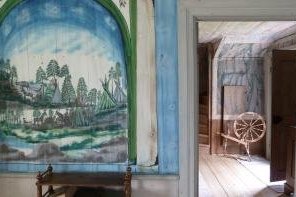
I can certainly see how others could be left uninspired by a visit to these, however we had a rather enjoyable trip to see, staying in a highly recommended farmhouse in the hamlet of Långhed. This also enabled us to have a tour of one of the inscribed farmsteads. It felt like a treat and as if we were privy to something special.
After what I can only describe as one of the greatest breakfasts I have ever had we were well set up for the day. Swedish accommodation is astonishing for this, there is just something about their simple high quality ingredients that just always hits the spot, the bread our host had sourced for us was the best I have ever had.
In terms of the world heritage site we visited Pallars. It isn't normally open but our bed and breakfast owner was a friend of the owner of the farm and he was able to arrange a private viewing. I felt a little awkward stood there waiting as the presumably elderly owner was woken by our arrival and then shuffled up behind the curtains of the main house, cracked open the door and slid out a set of keys so big it was like they were from a cartoon. This was very much in private ownership, and we felt rather privileged to be allowed in.
The farm was made up of three buildings, the main house was our gracious but hidden hosts home, so not in the …
Keep reading 0 comments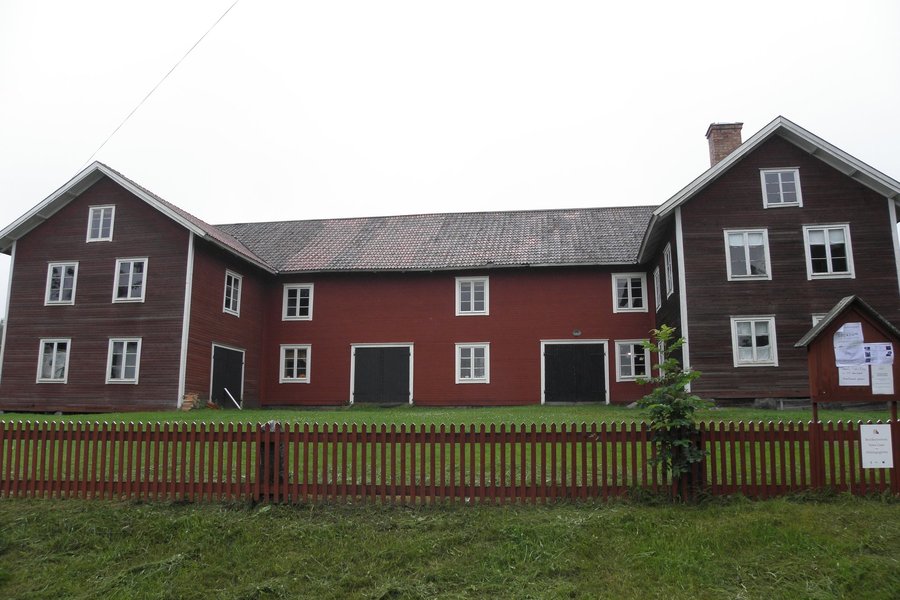
It was really hard to gather information about this WHS. As much as I know the houses are either privately owned or not accessible for about 11 month a year. I “visited” the Erik-Anders farm in Söderala. They way to the farm is now signposted so I found it in no time coming from Stockholm (E4 – exit Söderala a few km before Södermalm). I couldn’t see much more than a house that looked exactly like almost every house in Sweden. If I trust Els’s review I didn't miss much inside the house. I’m going to add this site to my list of odd sites (like the Stoclet House or the Berlin Housing Estates). If anyone knows about one of these houses being both publicly accessible and worth a visit I will gladly go back, check it out and eventually change my mind.
Keep reading 0 comments
WHS Farmhouses of Hälsingland: Unfortunately you tried to find those two that are completely private homes, and therefore not have signs, though they have had guided tours during the summer 2012 announced at the touristoffices. Pallars have paintings made by the bluepainter, remarkable landscapes. A certain stop for the crownprincess Victoria when visiting the area with her sister Madeleine, the duchesse of Hälsingland-Gästrikland, while one of the paintings show the crownprincess own castle of Haga. For me a WOW feeling! The problem has been to compromise private ownership, availability, highly decorated ... in the same object. Please do visit a couple of them all around the region of Hälsingland and I believe you will be able to feel the WOW feeling!
Keep reading 0 comments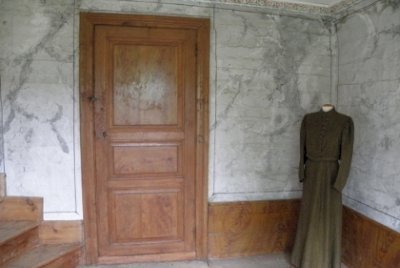
I was looking forward to writing the first review of this new WHS. It sounded like just the kind of site I enjoy: rural, remote, vernacular architecture. So I had added it to my short trip to Sweden already before the WHC announced that the Farms were granted WH status. Unfortunately, my visit turned into a big disappointment.
"Searching" for a WHS is part of the life of a WH spotter, and it can be a joyful part of the visiting experience. Since this was a new heritage, there was still not much known about it. In advance, I did my research via the Internet and discovered that 3 out of 7 farms are located along the route between the copper mine of Falun and the highway south towards Stockholm. For only 1 out of the 3, I was sure that it is open to visitors (most of these farms are still lived in by the owners).
I first stopped in the hamlet Langhed - unknown to my TomTom navigation, but I was just able to find it using a map that I had printed. Well, it turned out that Langhed is full of traditional red wooden farmhouses, but the 2 of them that are designated as WHS I could not find among them. There were no signs. At least not to these 2 farms: originally the nomination was much larger, in this region there are about 400 of this kind of farms. Some are now used as …
Keep reading 0 comments
